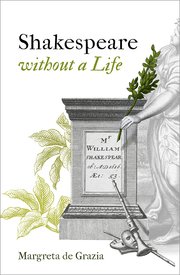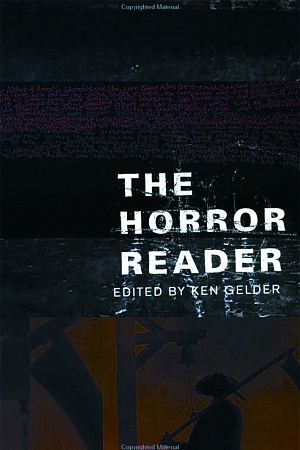Shakespeare Without A Life
Oxford University Press, £25 hb, 177 pp
Endless fascination
It is a rare year that goes by without the publication of yet another new biography of William Shakespeare in response to the seemingly insatiable desire for insights into the life and mind of the great writer. The proliferation of life studies isn’t exactly unwarranted: among the most exciting recent discoveries shedding light on how Shakespeare lived is Geoffrey Marsh’s pinpointing of the address at which Shakespeare lived in Saint Helen’s parish in 1598, and Glyn Parry and Catheryn Enis’s identification of numerous writs against John Shakespeare until as late as 1583, when Shakespeare was still a teenager.
Margreta de Grazia’s new book (and her Oxford Wells Shakespeare Lectures, upon which it is based) offers an innovative twist, asking not just why there should be such endless fascination with Shakespeare’s biography, but why that fascination only began two hundred years after Shakespeare’s death. With this startling observation comes the need to ‘bring into view what the later fixation on biography has effectively phased out’, and the recognition that the retrospective imposition of a biographical lens onto Shakespeare’s works has radically altered the way they are understood – including how they were understood for the first two centuries years after his death in 1616.
Continue reading for only $10 per month. Subscribe and gain full access to Australian Book Review. Already a subscriber? Sign in. If you need assistance, feel free to contact us.















Leave a comment
If you are an ABR subscriber, you will need to sign in to post a comment.
If you have forgotten your sign in details, or if you receive an error message when trying to submit your comment, please email your comment (and the name of the article to which it relates) to ABR Comments. We will review your comment and, subject to approval, we will post it under your name.
Please note that all comments must be approved by ABR and comply with our Terms & Conditions.